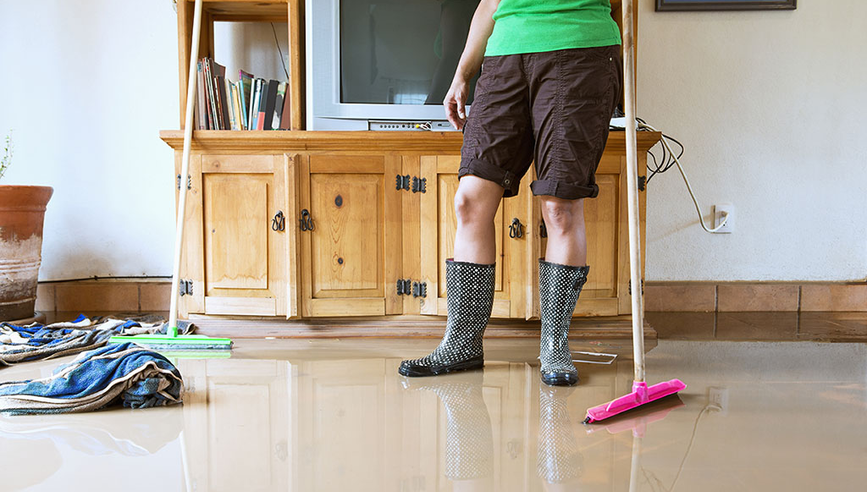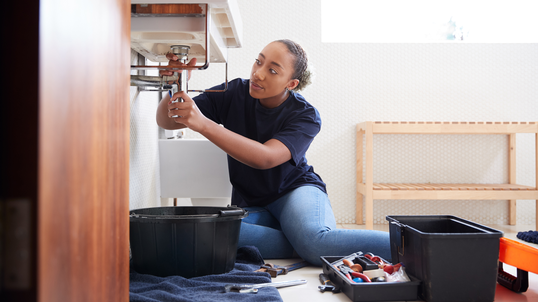Answers to 5 Common Insurance Questions About Home Water Damage


Water can quickly cause major problems in your home with a sudden, unexpected event like a burst pipe. While many homeowners underestimate the frequency of water issues that arise from plumbing or appliances, it’s helpful to know what your insurance will cover should a non-weather water incident occur. According to the Insurance Information Institute, over a five-year period, on average just over one non-weather water claim was filed per 50 homeowners policies each year, and the average cost per claim was almost $11,000. Here are five answers to questions you may have when you’re purchasing a homeowners policy:
1. Is my home covered if a pipe bursts?
Your homeowners insurance often will cover damage caused by a burst pipe if the incident is sudden and accidental. But if you ignore a known leak or other long-standing problem, there may not be coverage for your claim.
2. Is my home covered for water damage caused by a malfunctioning appliance?
If a major appliance – such as a dishwasher – has a mechanical failure and suddenly leaks onto your floor, your homeowners insurance typically will cover the damage caused by the leak. However, you would be responsible for paying to repair or replace the dishwasher itself.
3. Is my home covered if my roof leaks and water damages the interior?
Generally, if you have a comprehensive homeowners policy, you should be covered. However, if your policy is limited to specific perils, you’ll typically be covered only if those named perils caused the damage to your roof that led to water damage.
4. Is my home covered if vandalism causes water damage?
If someone enters your home and intentionally floods the sink or breaks a pipe, you typically will be covered as part of a vandalism and malicious mischief peril in your policy. However, there may not be coverage if your home has been vacant for more than 60 days before the incident.
5. If water used to put out a fire in my home causes damage, am I covered?
If there is a fire in your home and it’s extinguished by a sprinkler system or the fire department, you will be covered for water damage and mold. There may be exceptions or limits, so check with your insurance carrier about what your coverage includes.
Protect your home from water damage
A good way to protect your home from water damage is to take preventive steps to help keep your plumbing and appliances in good working order.
Protect your home from the inside
- Check all connections to major appliances like your dishwasher and washing machine. If a connection shows signs of corrosion or wear, consult with a plumber to replace it.
- Inspect showers, tubs and sinks to make sure they are properly caulked, watertight and free draining.
- Take the time to learn where your main water shut-off valve is and how it works.
- Regularly check your pipes for corrosion and leaks or hire a plumber to conduct an inspection.
Protect your home on the outside
- Caulk and seal windows to help protect against water seepage.
- Check your roof for missing, damaged and aging shingles or tiles and get them repaired as soon as possible.
- Keep gutters and downspouts clean to help prevent water from accumulating. Make sure downspouts discharge away from the house foundation.
- Check outside faucets and sprinklers and turn off their water supply and drain when it gets cold.
Protect your personal property
- Keep all of your major appliances clean and in good working condition.
- Store valuable legal, financial and personal documents in a watertight container.
- Make sure you have personal property coverage.
Find a Travelers representative near you to get a homeowners insurance quote that covers your home against water damage. Get protected with home insurance from Travelers.



